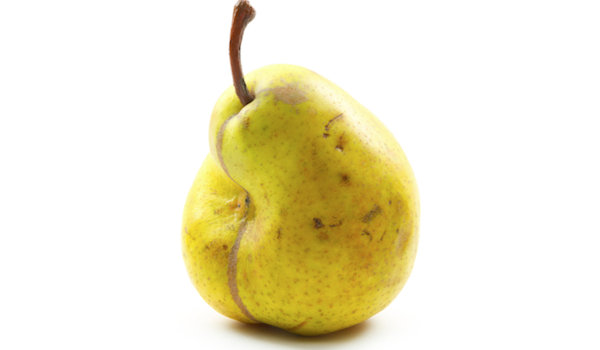The figures are startling: some $10 billion of fresh Australian produce ends up in the bin because it is ‘too ugly’ to sell.
Worldwide, the statistics are even more unfathomable: one third of all food produced is not eaten, as the UN’s Food and Agriculture Organisation (FAO) attests.
Yet there are a handful of local organisations giving disfigured produce a new lease on life.
Sydney-based produce market Harris Farm has announced a new campaign aimed been at curbing shoppers’ superficial choices when it comes to fruit and veg.
Growers have been asked to send their misshapen produce for sale, as Harris Farm ramps up its efforts to encourage purchasing.
While some misshapen produce can be sold for juicing purposes, or fed to livestock, there is still 25 per cent which is wasted.
Tristan Harris, Co-CEO of Harris Farm Markets, said they’re becoming more competitive with the price of their misshapen produce. Ultimately, growers, sellers and consumers all stand to benefit.
“The first benefit is a benefit to the environment, because it’s stopping food waste, the second benefit is to the farmers…and finally it’s a massive win for the consumer because it tastes just the same but this stuff’s around 50 per cent cheaper,” Mr Harris said.
Similarly, not-for-profit ‘food rescue’ service OzHarvest is campaigning to change community expectations of fresh produce.
Ronni Kahn, founder of the service which collects excess food from commercial outlets and supermarkets and gives it to charity, said Australians are about the looks.
One campaign making inroads though, is OzHarvest’s annual Think.Eat.Save event.
Held earlier this year, some of the nation’s top chefs, politicians and celebrities united at events held across Sydney, Adelaide, Brisbane, Melbourne and Newcastle to take a stance against food waste, and serve thousands of members of the public a free, delicious and hearty hot meal made from surplus produce that would have otherwise ended up as landfill.
Kahn says Think.Eat.Save, and OzHarvest’s work more broadly aims to bring attention to the disturbing amount of food wasted in Australia and around the world.
“Our modern-day challenge is to create a sustainable food culture that can be shared by all, where we waste less at all levels of food production and distribution,” Kahn said.
“It’s a paradox that we produce enough food to feed all seven billion of us – growing to nine billion, yet so much goes to waste, while so many continue to go hungry.”

